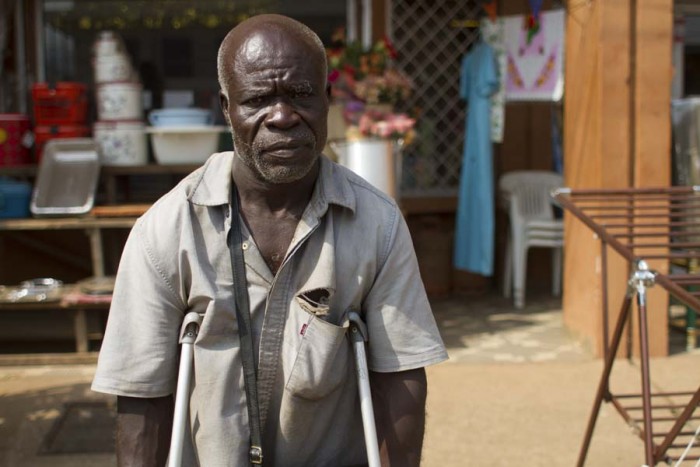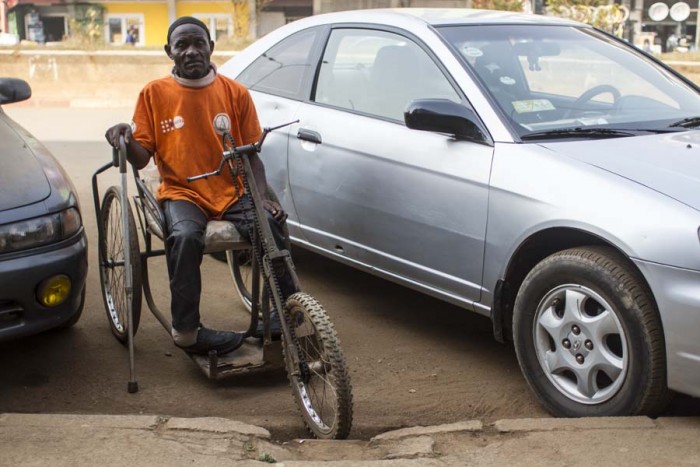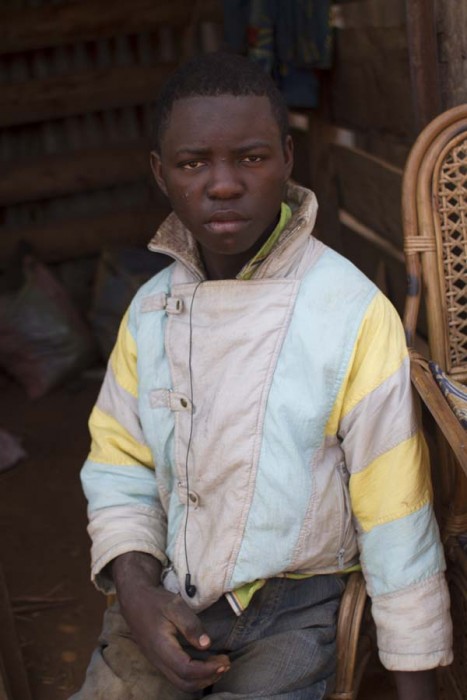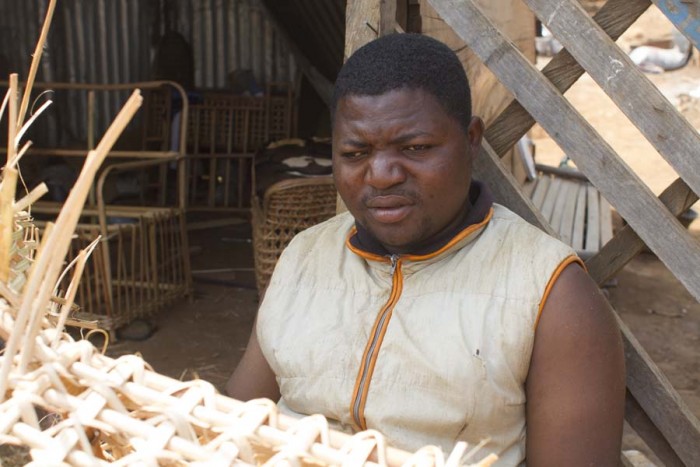December 24th, 2014 by Rachel | Tags: Disability, Healthcare, Peace Corps | 1 Comment »
Almost two months ago, when I was in Adamawa for a site visit, a few Peace Corps Volunteers and I were at a health center in a remote village about an hour and half outside of the capital. We were standing on the side of the road trying to catch a bus or taxi. A Peace Corps Volunteer tried to stop a bus that was passing by but it just continued to drive by. A few minutes later, we caught a taxi. About 15 minutes later, we came across the same bus that the Peace Corps Volunteer tried to catch. It was in an accident with another bus. It was caused by a break exploding, resulting the bus to crash into the other bus. I was witnessing an automobile accident in the country for the very first time. The front and driver’s side was smashed so badly. The taxi driver stopped and got out to help people at the accident scene. I didn’t see any ambulances or healthcare workers. A number of cars just stopped. Cameroonians got out and helped people at the accident scene. I saw them retrieve the driver out of the bus who was killed instantly. Some passengers also suffered broken bones. This scene shook me and made me feel grateful that I missed the bus. However, it made me pause and think about the healthcare system in Cameroon. I questioned if the people who suffered broken bones would be able to get to a hospital and be treated well.
Yesterday, I interviewed additional seven people with disability as part of my Community Needs Assessment. Four people who have mobility disability became disabled from accidents. They all use crutches or walking stick to help them walk. Two were hit by taxis. One was caused by a bamboo tree falling down on him. Another fell in the well. They all did receive medical attention for their disability. However, was the attention they received sufficient? If they had access to good quality healthcare and freedom from financial burden, would they have been able to be treated to the point that they could walk again? It has been clear that they do face financial hardship. Two dropped out of high school. Another stopped going to school right after finishing primary school. Another never went to school. As a matter of fact, the one who never went to school can only speak in a local dialect and cannot read at all. The reason is simply because they had no money to pay for school fees.

Moreover, when I was in training, I learned that health insurance is almost non-existent in Cameroon. Only one percent of all Cameroonians have health insurance coverage. The government provides almost no support for healthcare. Therefore, most pay out of pocket for their healthcare. The general population of Cameroon typically acquire funding for their healthcare through their salary, savings and loans. About 30% of the poorest Cameroonians and about 20% of the lower middle class Cameroonians have to sell their goods or animals to be able to afford healthcare.
As an American living in Cameroon, if I am in an accident and need medical attention, I will still have access to the highest quality healthcare. Peace Corps in Cameroon has three very own medical officers who only treat volunteers in Cameroon. If the healthcare facilities in Cameroon cannot provide me the attention that would ensure that I can reach the maximum potential to get better, Peace Corps would medevac me to the nearest highest quality healthcare facility which could be South Africa, Morocco or United States. However, unfortunately, almost all Cameroonians do not have access to this kind of healthcare system that I currently have. I have this high quality access simply because I have the financial support. It’s an injustice. Access to the highest quality of healthcare should be a basic human right. Moreover, when people are properly treated, it can be a huge cost saving to the society.


The latest interview results also show that access to water is a huge problem for people with disability. Three who do not have direct access have to pay someone to get water for them. When I think about this, if they didn’t have to pay to get assistant for water, would they have had more money to improve their quality of health? Four cannot shop for food due to their disability. One sits outside and waits for vendors to walk by with food to buy. I met a blind man who has been blind since birth and never gone to school simply because his parents felt that he could not learn and it was not worth the investment.

Yesterday, when I was reading one of my Peace Corps manual books, I came across this information that is in the Peace Corps Act:
“In recognition of the fact that there are over 400,000,000 disabled people in the world, 95 percent of whom are among the poorest of the poor, the Peace Corps shall be administered so as to give particular attention to programs, projects, and activities which tend to integrate disabled people into the national economies of developing countries, thus improving their status and assisting the total development effort.”
When I read this passage, I asked: Why is the number of disabled people so much higher among the poor? I will find out more throughout my service.

1 Comment
Kay Kershman
December 24, 2014 at 10:36 am
this is not a surprise to me. The poor in our country face hardships for medical care b/c it is so costly. Many older people do not know whether to give up their medication or cut back on food. If that is a problem in the U.S., learning that the problem exists in Cameroon does not surprise me.